Iran Poverty Rate Reached Over 30% Since 2018
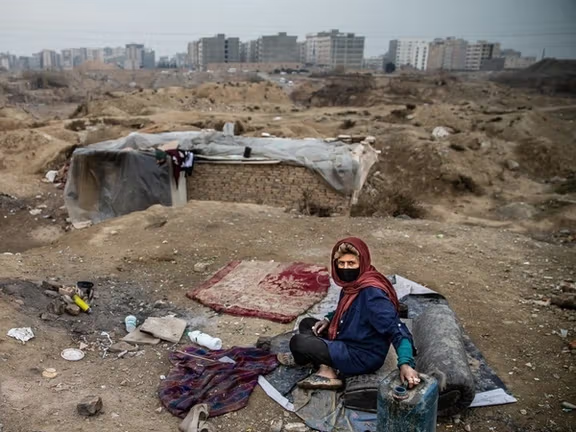
Iran’s Parliament Research Center says the country's poverty rate has reached over 30% since 2018.

Iran’s Parliament Research Center says the country's poverty rate has reached over 30% since 2018.
According to the report released on Tuesday, in 2021, the population below the absolute poverty line in the country increased to 30.4%.
Based on the report, unemployment, lack of a higher education degree, having children and being a tenant are among the factors that increase poverty in the country.
The report shows that Iran's economic situation has been deteriorating long before the global sanctions hit the country's economy.
According to a report published by ILNA in January, one-third of the country’s population is now living in extreme poverty, after the number almost doubled in one year from 2020 to 2021. However, it is believed that the number could in reality be far higher.
According to official figures released by the interior ministry, around 60 percent of the 84 million Iranians live under the relative poverty line of whom between 20 to 30 million live in "absolute poverty".
Economic failures of the regime are becoming more and more difficult to justify, even given US sanctions. "The main reason for the [economic] problems [in the past ten years] is not just the sanctions. A major part of these were caused by wrong decisions and inefficiency," Supreme leader Ali Khamenei admitted in a speech last year.
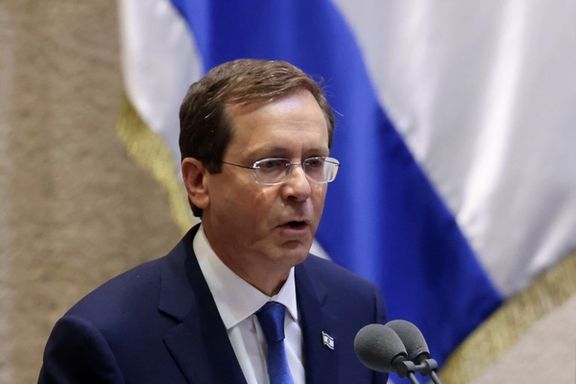
Israeli President Isaac Herzog and his Azerbaijani counterpart Ilham Aliyev discussed the threat of Iran in Baku on Tuesday.
“We look at the regional security structure that is threatened by Iran - a topic that we discussed in depth,” Herzog said following his meeting with Aliyev, “and we expect to develop cooperation between us in many fields.”
Azerbaijan and Israel have been expanding bilateral relations for many years, with Herzog's visit being the latest step. Israel has had an embassy in Baku since 1992 and in March, Azerbaijan opened its own in Tel Aviv.
“Iran is a destabilizing influence in the region that is working continuously to act against Israel and against the alliance of peace and security that is developing in the region, and I will certainly discuss this,” said the Israeli president.
Herzog will participate in a ceremony celebrating Israel's 75th birthday along with the local Jewish community on Wednesday.
Oil and gas rich Azerbaijan gets 69% of its military weapons from Israel, and Israel imports 40% of its oil from the Caucasian state which shares a border with Iran.
It has been a tense few months between Tehran and Baku. Iran angrily reacted to Azerbaijan’s opening an embassy in Tel Aviv in March, accusing it of aiding Israel in its operations against the regime, in addition to relations souring following an armed attack on Azerbaijan’s embassy in Tehran in January. Iran has also carried out military drills over the border in a bid to intimidate its neighbor.
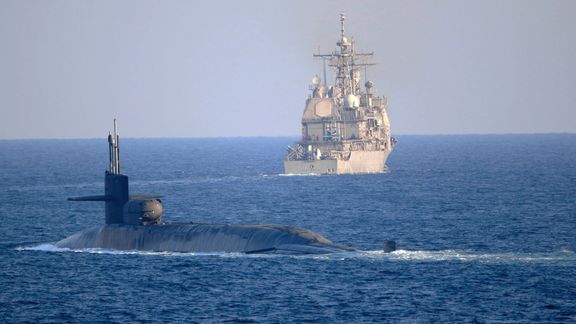
The United Arab Emirates said Wednesday that it withdrew from a US-led Middle East maritime security coalition two months ago after evaluating its security relationships.
The UAE move roughly corresponds with Saudi Arabia’s decision in early March to restore diplomatic relations with Iran, which has been much discussed as a shift in Riyadh’s regional policies. The deal was brokered by China which further highlighted a weakening of the decades-long reliance on the United States by Persian Gulf Arab oil producers.
"As a result of our ongoing evaluation of effective security cooperation with all partners, two months ago, the UAE withdrew its participation in the Combined Maritime Forces," the Ministry of Foreign Affairs said in a statement carried by state news agency WAM.
The Combined Maritime Forces is a 34-nation task force, headquartered at the US naval base in Bahrain, working on security, counterterrorism and counter-piracy in the Red Sea and the Persian Gulf areas. But in fact, the US and Israel were trying to forge a regional coalition to contain Iran, including an air defense network.
The region contains some of the world's most important shipping routes where, since 2019, suspected Iranian attacks began against oil tankers amid tensions with the United States. The Obama, Trump and Biden administrations chose not to retaliate against Iranian naval provocations over the years or show a convincing military deterrent response.
Former President Donald Trump was said to have blinked when suspected Iranian drones and missiles hit Saudi oil facilities in September 2019, inflicting heavy damage. Reports at the time said that Trump changed his mind about a military response at the last minute.
The statement said the UAE was committed to dialogue and diplomatic engagement to advance regional security and stability, and that it was committed to ensuring navigation safety in its seas in accordance with international law.
However, five weeks ago, Iran seized two tankers within a week in Gulf waters near the Strait of Hormuz. The second tanker, the Niovi, had been travelling from Dubai toward the UAE's Fujairah port.
The UAE also said that a report by the Wall Street Journal on Tuesday which, citing US and Gulf sources, said the UAE was frustrated by the lack of US response to the recent tanker seizures, was a "mischaracterization" of conversations between the two countries.
However, the UAE decision to leave the maritime coalition and speak about “diplomatic engagement” - possibly referring to Iran - to enhance its security, shows that the WSJ report was not off the mark.
The UAE announcement will be seen in Tehran as a triumph, since the Iranian regime has proclaimed the goal of expelling the United States from the region to be at the top of its agenda.
The White House will face more domestic criticism by Republicans, who have already charged that the administration's flirtations with Iran to revive the 2015 JCPOA nuclear deal, has driven the Saudis to seek alternative security arrangements.
Iran, however, might press its luck too hard. If Tehran was aware of the UAE decision, its new seizure of vessels in the Persian Gulf might demonstrate to the Emiratis that Tehran will not be satisfied with a more neutral UAE position and will use military force to further intimidate regional countries.
With reporting by Reuters
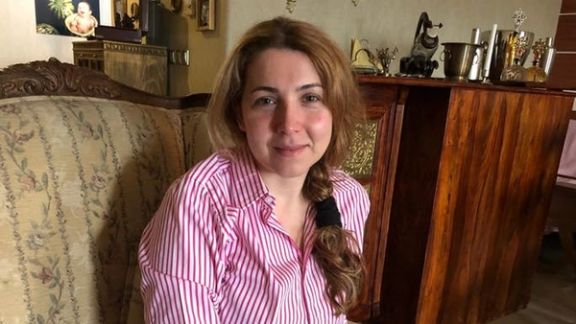
Several Iranian female political activists have spoken up about prison guards unnecessarily forcing them to strip naked, even in front of cameras, to humiliate them.
Anti-compulsory hijab activist, Mozhgan Keshavarz, who was the first to raise the humiliating stirp search of female detainees, told Iran International Monday via video conference that she was first strip-searched after her arrest in April 2019 and detention at Vozara Detention Center in Tehran where the 22-year-old Mahsa Amini died in custody on September 16 last year.
Keshavarz said the search took place in front of a camera and was repeated when she was taken to Qarchak Prison for women, and then at a Revolutionary Guards (IRGC) detention center where she was photographed completely naked and was told the photos were taken to add to her case file to make sure she would not later claim she was tortured during her detention.
At the IRGC detention center she was held in a solitary cell where she had to sleep on the carpet-covered ground and to shower and use the toilet in front of the camera in the cell.
“I had to wash my body with my clothes on,” she said, adding that she does not think the feelings of humiliation and shame she felt would ever go way. “I’m not the same Mozhgan that I was who always laughed.”
Keshavarz was assaulted by one of her interrogators there and her neck tendon was broken which required surgery. She was finally allowed to go on medical furlough in 2021 and was conditionally freed later. She is currently living in hiding as the IRGC has issued another arrest warrant for her.

Keshavarz was arrested with two other activists for offering white roses to women on a Tehran metro train, the International Women’s Day, and asking them to support anti-compulsory hijab activists.
She was later sentenced by a revolutionary court to a total of twenty-three years and six months -- five years for “assembly and collusion for acting against national security”, one year for “propaganda against the regime”, ten-years for “encouraging moral corruption” and seven years and six months for “insulting sanctities”—but the sentence was later reduced to twelve years and seven months after appeal.
Keshavarz’s story was first shared with the public through the Twitter account of the Me-too-Movement-Iran on Saturday. She told Iran International that she only wanted to share her feelings with others but soon found out that what happened to her is a routine practice in prisons and many other activists have had the same experience.
Since her revelations, other female activists including Zeynab Zaman, Shaparak Shajarizadeh and actress Mahnaz Afshar who were subjected to same humiliation have also come forward with their stories.
In a series of tweets Sunday, former political prisoner Nasibeh Shamsaei said she was forced to fully strip in front of prison cameras at a ward run by the Revolutionary Guards (IRGC) at Evin Prison of Tehran and again at Qarchak Prison for women.
“I was forced to do this three times. I was told to strip in a cell measuring two by one and a half meters at A2 Ward of the IRGC at Evin Prison with a camera above my head and I didn’t know who was watching… She made me squat and get up twice under the pretext that she wanted to make sure I hadn’t hidden anything in my vagina. The same thing happened when I arrived at Qarchak and once again after an in-person visit,” she wrote.
According to Shamsaei women were forced into such humiliating search even if they were having their periods. “After the in-person visit she forced me into it when I was having my period.”
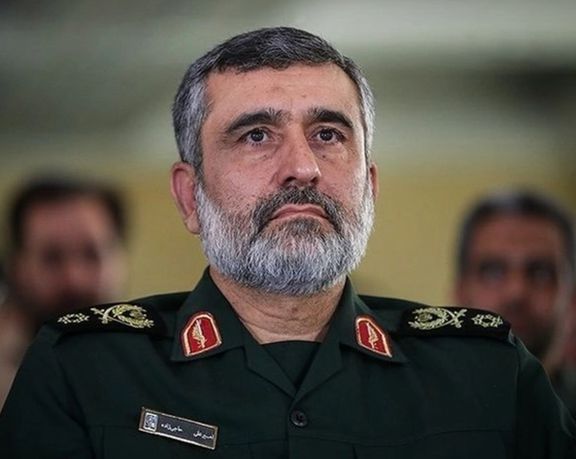
Following the killing of at least three during clashes with Taliban forces, the commander of the IRGC Air Force said Monday that “such conflicts should not be overstated.”
Amir Ali Hajizadeh said of Saturday's clash: “Some people are to turn these conflicts into a war, but such a war will never happen."
Two Iranian border guards and one Taliban fighter were killed after shooting broke out near a border post. It was not immediately clear what had caused the incident, in which several people were also injured, but it came amid tensions over water rights.
Iran has accused Afghanistan's Taliban of violating a 1973 treaty by restricting the flow of water from the Helmand River to Iran's parched eastern regions, an accusation denied by the Taliban.
Hajizadeh admitted only that “there have been some incidents on the border that are being managed by the forces there, and we should not add fuel to the fire," in a bid to downplay the escalation.
Regime voices including Esmail Kosari, a member of Iranian Parliament’s National Security Commission, have also massively understated the killing and wounding of Iranian border guards saying it was a "disagreement and fighting between children of the same household", suggesting the regime is working hard to ensure no further escalation.
His statements angered many Iranians saying there is no similarity and brotherhood between Iranians and the Taliban militants who have been responsible for years of brutal atrocities against the Afghan people.
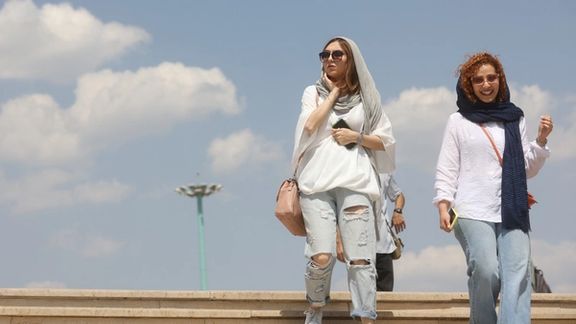
Heated debates over a new bill about how to deal with women who refuse to observe compulsory hijab continues inside and outside the Iranian parliament.
The bill is not forceful enough for hardliners, because it bans religious conservatives from confronting women who don’t cover their heads. The bill mainly relies on cash fines to force women to wear the hijab.
Part of the regime in Tehran fears strict and forceful enforcement of hijab might trigger another round of protests, similar to last September when a 22-year-old woman died after her injuries in ‘morality police’ custody.
While some hardliners demand harsh treatment of bad-hijab women, Vice President for Legal Affairs Mohammad Dehghan told reporters in Tehran on Monday: "We wish to avoid making hijab a pretext for further deepening divides and disputes in the country." He added: "We are thinking of using the issue as a basis to bring about national solidarity."
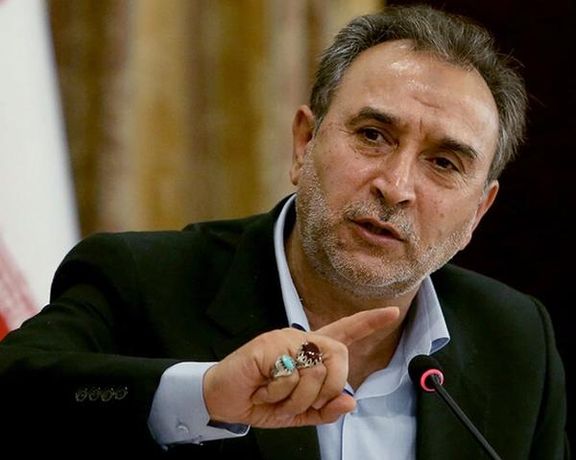
Dehghan said that the current bill, which has been criticized by some hardliners as being focused on levying monetary penalties rather than confronting women in the streets, has been prepared by the Judiciary and the administration has simply tried not to change it dramatically.
Referring to the criticisms, Dehghan said, "After the recent protests which were organized by foreigners, the issue of hijab must be dealt with a more comprehensive approach." He probably meant that the government needs to take a pragmatic stance to avoid further unrest. He reiterated that the government believes in "a cultural approach" to the issue.
Dehghan, however, made it clear that the government agrees that celebrities who promote the idea of "hijablessness" should be dealt with legal prosecution. He added that the security forces will deal with those who promote anti-hijab ideas based on foreign views. In other cases, law enforcement will simply advise women to observe the hijab. If they accept the guidance, then that is all, but if they insist to defy the hijab, they will be fined.
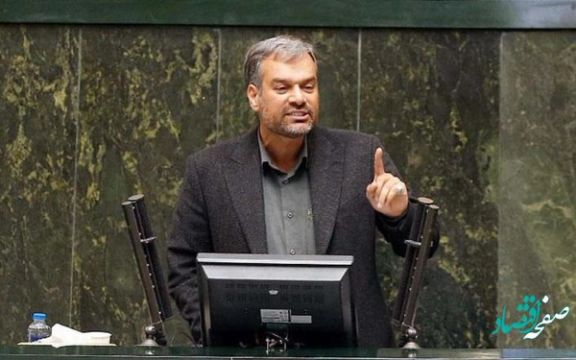
One of the staunch critics of the hijab bill happens to be President Ebrahim Raisi's father-in-law Ahmad Alamolhoda, the Friday prayers Imam of Mashhad. Lawmaker Jalal Rashidi Koochi quipped that Raisi should take back the hijab bill from the Majles and hand it over to Alamolhoda for further review before giving it back to the parliament.
Koochi charged that "the bill in its current form is all about arresting and fining women. If Alamolhoda wishes to make any change in the bill, he should not criticize the parliament as he did. He should instead address his complaints to his son-in-law Raisi." Alamolhoda had earlier called on the Majles not to ratify the bill as it will promote lack of hijab.
Koochi however criticized the bill for lacking any provision that would encourage women to observe the hijab. "The bill is mainly about if you do this, you have to pay this amount," Kooch said.
During the past week, many conservatives and hardliners harshly criticized the bill. The hardline editor of Kayhan daily Hossein Shariatmadari said "It is funny that the police is only allowed to send text messages to women telling them that they have been seen without headscarf. This bill cannot enforce the hijab."
Former Deputy Judiciary Chief Mohammad Javad Larijani said: "If someone sees a naked woman standing behind the window, he should have the right to call the police." Meanwhile, responding to Iranian politicians who have called for holding a referendum about hijab, Larijani said that this will violate the Constitution of the Islamic Republic.
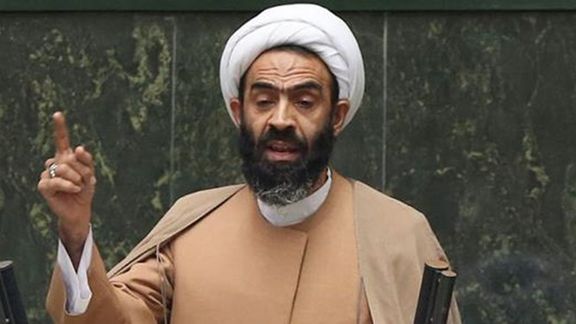
Lawmaker Mohammad-Taghi Naghdali, the secretary of the parliament's legal committee, in a video that quickly went viral suggested harsh punishments including lashes and deprivation from social rights as well as heavy fines for women who refuse to wear the compulsory hijab.
Calls for harsher punishments than what is called for in the hijab bill continue by seminary clerics, Friday Prayer Imams and other hardliners in various parts of the country, while the number of women defying hijab has been on the rise in the streets during the past 8 months since the start of Women, Life, Freedom movement in Iran, despite the official ban on the entry of hijabless women to academic centers and administrative buildings and even subway stations.